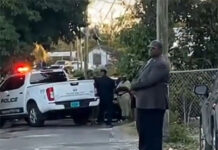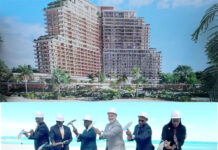
The Editor
Bahamas Press 5 July 2020
Dear Sir,
As one who has observed the activities of the Royal Bahamas Police Force for more than 50 years, the inconsiderate and raucous behaviour of those persons watching the recent passing out parade comes as no surprise.
This is a regular occurrence at events especially military funerals where the oohs and ahs occasioned by the rifle volleys over a fallen comrades drowns out the wailings and anguished cries of the family members of the deceased. Oh, how far these once venerable institutions have fallen.
Even more unsettling is the behaviours displayed by the public and politicians some of whom show up in track suits at the so-called Beat Retreat ceremony, one of the most historic and solemn ceremonies on the RBPF and RBDF’s annual calendar. This ceremony is now nothing more than a pop concert and has lost all significance to these organisations.
And senior RBPF and RBDF officers appear to be unable or unwilling to get this mess back on track. Maybe they just don’t know any better.
For years, the RBPF has been playing a numbers game and putting ill trained and poorly socialised persons in police uniforms.
Every day we are seeing and, in many cases, experiencing the results of this policy. I watched this particular crop of recruits because the Minister of National Security had indicated that 100 additional police were needed. It was therefore expected that some 125 recruits would start training and with wastage you got about 85 decent recruits. What actually happened was that 100 recruits started training and 100 graduated a graduation rate of 100%.
I would posit that no credible training which is assessed by physical fitness, law, drill, firearms, social graces and general knowledge can possibly have a 100% pass rate unless of course, the idea was to create jobs rather than put properly trained police officers on our streets.
A zero-attrition rate tells me that the RBPF is not taking seriously its responsibility to screen recruits and weed out those recruits who will not become good police officers before they do further damage police relations with the citizens.
Perhaps the training is so haphazard and easy that it is just a holiday with pay. It should therefore come as no surprise that the RBPF has enabled poorly trained officers to commit a pattern and practice of abuse against Bahamian citizens on a daily basis.
Many times, these abuses are video recorded, yet, the abusive behaviour continues and, now appears to have been normalized by police leadership.
The knock-on effect of a poor training program evidenced by the behaviour of police over the years indicates that trainers have failed to train, remould and redirect recruits who are genuinely proud of their organisation and will do nothing to diminish its prestige in the community. Afterall, who would be proud of any organisation which admits anyone?
Sincerely,
Michael J. Brown







